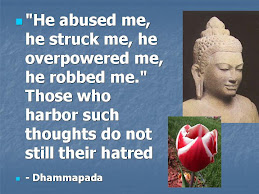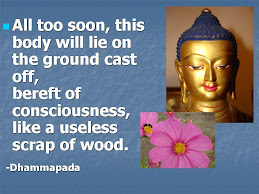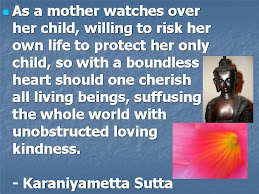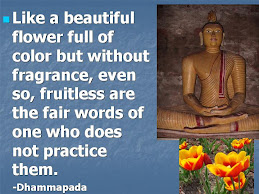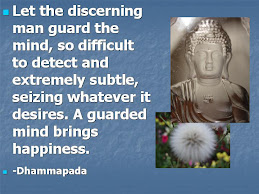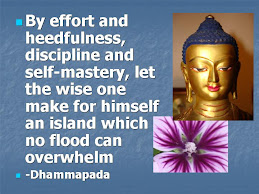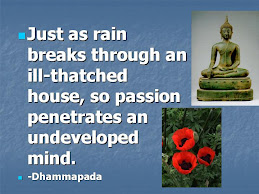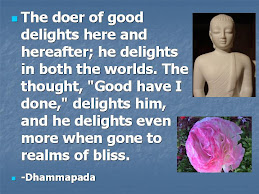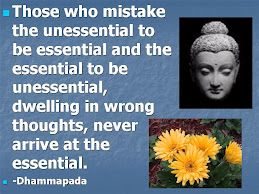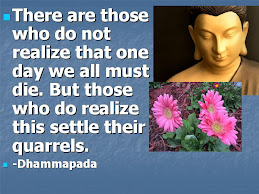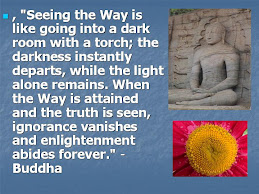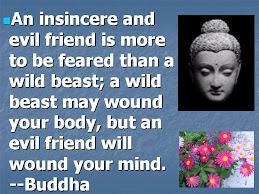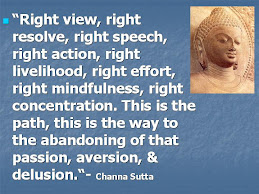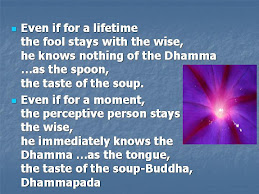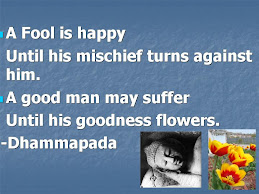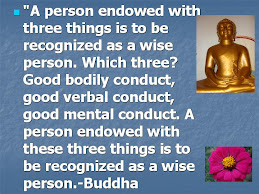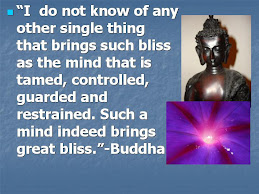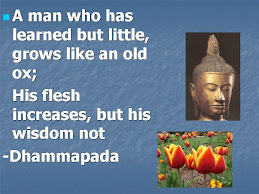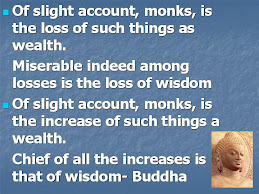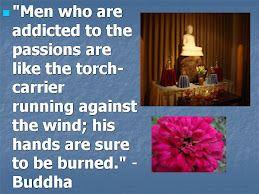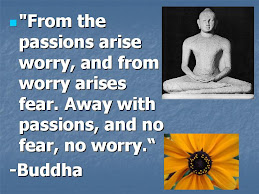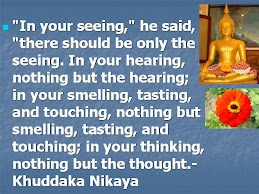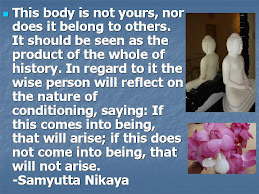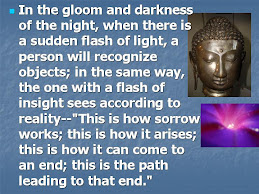 A cartoon my son sent me when I first started this blog.
A cartoon my son sent me when I first started this blog.This sutta explains four skillful ways of answering questions:
1. There are questions that should be answered categorically, for example, yes or no answer.
2. There are questions that should be answered with an analytical (qualified) answer. You explain the answer in detail defining and redefining the terms.
3. There are questions that should be answered with a counter questions.
4. There are questions that should be put aside.
Buddha went on to say that "any persons who is practicing Dhamma (Buddha's teachings) will be skilled in the four types of questions: hard to overcome, hard to beat, profound, hard to defeat. He will know what is worthwhile and what is not, and will be proficient in recognizing both. He will reject what is worthless, and will grasps what is worthwhile. He is called who is prudent and wise"
Could we apply this to our daily lives? It will not be easy, but we can try. Let me share with you some of my personal experience. A common mistake I make is trying to answer questions analytically when the answer should be a simple yes or no. This was an old habit of my mine that came with my training. This has got me in to lot of trouble in the past. Now I am a little more mindful on this. The other problem was I often failed to recognize the questions that should be put a side. This still happens and I have to be more mindful on this.
Now how can we use the above outlined methods of answering questions practically? Most people ask question genuinely because they don't no the answer. You can choose method one or two outlined above to answer them according to the knowledge you already have. Some people ask questions when they already know the answers. The reason is they want to test you. If you mindfully listen (see previous posting below) you may be be able to catch this early enough. In this case you may want to use method number three or four. Yet another group of people asks questions to get you to start an argument. Be very mindful with these questions. You definitely want to use the method number four here. Where else could you use the method number three? This could be used when you want to avoid answering a question. A simple example is when somebody ask a question like; how old are you? You may want to ask a counter question like, how old you think I am? But the real question may be more complex than this.
If you are mindful enough you will soon realize whenever we get in trouble trying to answer questions it is because we are not skilled in the above methods. You may not be able to see this or practice this at once as your mind has already been conditioned over time. As we know humans are creatures of habit and it will take a some practice and effort before we become fully skillful in answering questions wisely. Therefore don't be afraid to make mistakes. Always try to contemplate on the mistakes you have just made. Please don't dwell on it. Acknowledge the mistake, forgive yourself and lean from it. There isn't always a "perfect answer". It is how we approach the question which more important than the answer itself.
As I said in many of my previous postings, you just don't have to accept these methods of answering questions, just because you read it here. Try it out for yourself at the next opportunity you get. Questions are not hard to find. The right answers are more difficult to come by. However, if you are skillful in the methods of answering questions that is all that matters. This will hopefully keep us all out of trouble!
See other related posts:
"Just shut up and listen" - How to be a mindful listener -A Buddhist perspective


























